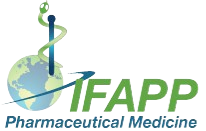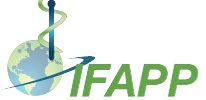The Ethics Working Group (EWG) will follow in the steps of previous achievements, e.g. the IFAPP International Ethics Framework for Pharmaceutical Physicians and Medicines Development Scientists (PPs & MDSs), version 2016 and 2nd edition of March 2018.
“New Trends of Research Ethics”
The IFAPP Ethics Working Group (https://ifapp.org/working-group/ethics/) is delighted to share with you the summary of the Presidential Symposium of the Japanese Society of Clinical Pharmacology and Therapeutics held in Tokyo on 4 December 2019 on the topic of “International Collaborative Research and New Trends of Research Ethics”. You can access the proceedings in the journal Rinsho Hyoka (Clinical Evaluation) at http://cont.o.oo7.jp/48_1/48_1contents_e.html.
Amongst others, there were presentations and discussions by Dr. Otmar Kloiber (Secretary General, World Medical Association [WMA]), Dr. Dirceu Greco (Professor Emeritus, Minas Gerais University, Brazil), Prof. Kyoko Imamura, (IFAPP President) and Prof. Chieko Kurihara, member of the IFAPP Ethics Working Group.
Extensive discussions took place on secondary data-driven research, the place of placebo in randomized clinical trials, and post-trial access of medicinal candidates before marketing authorization.
These latest trends of research ethics prompted the IFAPP Ethics Working Group to raise these issues with WMA, on potential amendments of the Declaration of Helsinki.
We welcome all stakeholders in the research ethics community to engage and participate in the discussion with us.
The first edition of IFAPP Ethical Code was published in April 2003: INTERNATIONAL CODE OF ETHICAL CONDUCT FOR PHARMACEUTICAL PHYSICIANS
Ethics in medicine and particularly pharmaceutical medicine is being questioned and challenged almost daily. The revised Declaration of Helsinki, the EU Clinical Trials Directive, the Washington Post “Body-hunters” series from December 2000, inevitably open our industry to ever-increasing public scrutiny. Dialog amongst patients, investigators, institutions, sponsors and the media highlights the need for transparency, and guidance on how to manage these situations responsibly, before they become issues. We find ourselves faced with numerous challenges in the varied ethical and cultural issues in Pharmaceutical Medicine across the globe, and in the ethical dilemmas across the therapeutic spectrum. Interestingly the literature and most of the reference books authored by respected academics are collections, collations and commentaries from a number of sources and fail to provide guidelines.
Medical ethics has been governing human behavior as far back as Hippocrates in the late 5th century BC. However as science becomes more innovative and medical research processes more creative, the ethical boundaries that limited ‘what was considered possible’ are now being challenged by scientific endeavor using rational justifications that often go beyond common sense.
Controversial ‘ethical’ issues emanating from the revised Declaration of Helsinki, the various EU Clinical Trials Directives and Regulations, as well as the media, inevitably open the pharmaceutical industry to increasing public scrutiny. There is a need for transparency and guidance on how Pharmaceutical Physicians as the ‘conscience and guardians’ of Pharmaceutical Ethics can proactively manage these situations responsibly, well before they become major issues.
Pharmaceutical Physicians should recognize their ethical responsibility and stand aside from blind company loyalty when assessing factors affecting the product itself. They must remain aware at all times that the ultimate interests of both patients and their own employers are best served by an objective scientific attitude. IFAPP recognizes that this may place a practicing Pharmaceutical Physician in a position which demands considerable determination to maintain.
An International Working Party (WP) was established in September 2001 to advise the International Federation of Associations of Pharmaceutical Physicians (IFAPP) on how to manage this complex area. It was recognized that there are ethical issues which are of particular relevance to Pharmaceutical Physicians, and IFAPP believes that it has a responsibility to define and publish standards to which Pharmaceutical Physicians and others can refer, so that they may be measured when dealing with ethical issues in the field of Pharmaceutical Medicine.
View full text of the previous version here.
The second revised edition of IFAPP Ethical Code was published in 2018: INTERNATIONAL CODE OF ETHICS
The revision was undertaken since it was felt by many colleagues working in drug development that it is necessary to update the first document considering the rapid scientific development and additionally to consider the joint responsibilities of the many basic scientists working side by side with pharmaceutical physicians in modern complex clinical medicines development projects.
The short list of recommendations compiled by two successive IFAPP Working Groups on Ethics tried to collect some practical suggestions how to behave under circumstances which might be faced by the teams or individual team members, when participating in clinical development of medical products and/or during their subsequent life-cycle management. It is understood by the members of the Working Group that each situation is different and under various circumstances the ethical decisions might also be different.
Therefore, it was a principle decision not to provide ethical guidelines or directives which were felt to be restrictive or imply disciplinary actions. Rather it was intended to advise on possible correct ethical behavior listing some circumstances and appropriate actions. This Framework cannot cover all the situations which might occur during the very complex work of medical product management. It attempted to cover at least some of the new ethical problems which surfaced with the introduction of new scientific approaches. The discipline is constantly evolving and the working group will continue to evaluate if new guidance may become appropriate. All scientists involved in development of medical products are invited to help us to extend this catalog of recommendations. It is our hope that the IFAPP Ethics Framework might be integrated into a teaching material for educating future PPs and MDSs on proper ethical behavior.
PUBLICATIONS
Scientific articles published in Frontiers in Pharmacology on IFAPP’s considerations about Ethical Principles, Ethical Responsibilities and Ethical Framework can be found on the “Publications” page (https://ifapp.org/publication/)
IFAPP’s International Code of Ethical Conduct and articles published in IFAPP’s former Newsletter IFAPP World and IFAPP TODAY (https://ifapp.org/ifapp-today/)
- High importance of IFAPP’s ethical code of conduct
- High satisfaction with services and communication
- IFAPP’s international code of ethical conduct for Pharmaceutical Physicians – 6 years later
- International Code for Ethical Conduct for Pharmaceutical Physicians (April 2003)
- Report on session C – Ethics in Pharmaceutical Medicine
- Review of the Declaration of Helsinki
- Webinar COVID-19 and Bioethics – Pandemic and Research Ethics: Democracy, Placebo and Post-Trial Access
Scope
The EWG will monitor new trends in research ethics and raise awareness publicly.
Objectives
The EWG will:
- collaborate with National Member Associations and Individual Affiliates and identify current and burning issues in research ethics,
- identify national and international partners in order to develop strategic alliances with key stakeholders to raise awareness of important ethical issues,
- monitor and assess the rapidly changing environment for new trends in research ethics,
g. ethical issues on new technologies such as ePRO1, eConsent2, genome editing, patient privacy versus secondary use of data including RWD3, post-trial access of investigational medications, patient centricity, etc., - share intelligence with the other IFAPP WGs and align on topics and activities thereby using synergies whenever possible,
- continue to develop publications about issues not only of new ethics trends but also of ethical concerns in Pharmaceutical Medicine.
Measures
Concrete measures are laid down in a work plan that is drafted by the group and reviewed on an annual basis.
Click here for the Call for Applications on the IFAPP News page.
1ePRO – electronic patient reported outcomes
2eConsent – electronic Informed Consent
3RWD – real world data
Members
-

Kotone Matsuyama
-

Sander Becker
-

Anthony Chan
-

Chieko Kurihara
-

Sandor Kerpel-Fronius
-

Yasmin Nagaty
-

Varvara Baroutsou
-

Shehla Naseem
-

Francis P. Crawley
-

Eric Klaver
 International Federation of Associations of Pharmaceutical Physicians and Pharmaceutical Medicine
International Federation of Associations of Pharmaceutical Physicians and Pharmaceutical Medicine













